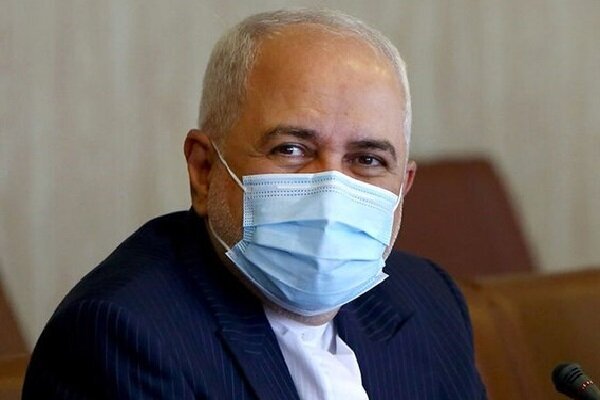Zarif: U.S. has ‘limited window of opportunity’ to return to nuclear deal

TEHRAN - Foreign Minister Mohammad Javad Zarif says Iran is ready for a new relationship with the United States but the clock is ticking.
In an exclusive interview with CNN's Christiane Amanpour late on Monday, Zarif said the Biden administration has a "limited window of opportunity" to re-enter the 2015 nuclear agreement.
"The time for the United States to come back to the nuclear agreement is not unlimited," he said. "The United States has a limited window of opportunity, because President Biden does not want to portray himself as trying to take advantage of the failed policies of the former Trump administration."
Iran has removed some caps on its nuclear program after the Trump administration withdrew the United States from the 2015 nuclear deal in May 2018 and slapped sweeping sanctions on Iran. Iran started to gradually reduce its commits to the nuclear deal, officially called the JCPOA, exactly one year after the U.S. quit the multilateral agreement.
Tehran has made clear that any agreement now with the Biden administration will be contingent on a reversal of the harsh economic sanctions imposed by the Trump administration.
In December, the Iranian Parliament passed a legislation obligating the government to ramp up uranium enrichment, if American sanctions are not eased within two months of the law's adaptation.
On January 4, the Atomic Energy Organization of Iran (AEOI) resumed enriching uranium to a purity of 20 percent. According to the legislation if sanctions are not lifted the government should suspend the Additional Protocol to the NPT.
Asked just how swiftly Iran could scale back its uranium enrichment program to comply with the nuclear deal if the U.S. lifts sanctions, Zarif said, "8,000 pounds of enriched uranium can go back to the previous amount in less than a day."
Zarif, a former Iranian ambassador to the UN, said that Iran has acted in accordance with dispute mechanisms written into the JCPOA, since the U.S. withdrawal. "Iran used the mechanisms in the nuclear agreement in order to limit its cooperation. If you read paragraph 36, we acted in strict accordance with the nuclear agreement," he said.
He also said the United States must stop sale of highly advanced weapons to regional countries if it wants to talk about Iran’s missile program.
"Is the United States prepared to reduce hundreds of billions of dollars of weapons it is selling to our region? Is the United States prepared to stop the massacre of children in Yemen if it wants to talk about the situation in Yemen?" he said.
Coalition airstrikes in Yemen have involved U.S.-made bombs, CNN investigations previously revealed.
"The United States has to accept what we agreed upon," Zarif also said. "We decided not to agree on certain things, not because we neglected them, but because the United States and its allies were not prepared to do what was necessary."
According to Zarif, the question over who must take the first step in returning to the JCPOA could be resolved by EU foreign policy chief Josep Borrell.
Borrell could put his "hat on" as coordinator for the Joint Commission of the JCPOA "and sort of choreograph the actions that are needed to be taken by the United States and the actions that are needed to be taken by Iran," he suggested.
Leave a Comment